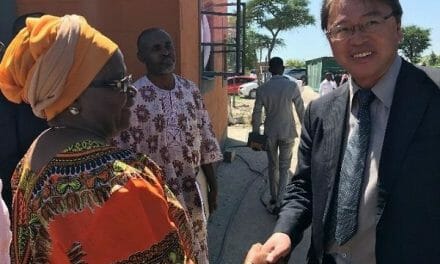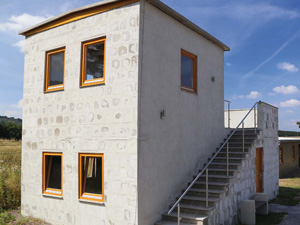
EU Delegation talks to civil society for funding after 2013
With the 10th European Development Fund’s (EDF) cycle ending in 2013, the EU Delegation to Namibia has begun charting its future cooperation with Namibia under EDF11, which begins in 2014.
Addressing representatives from civil society and the chief economist at the National Planning Commission, Bertha Njembo, Head of the EU Delegation to Namibia, Ambassador Raúl Fuentes Milani noted that as a development partner, the European Union (EU) has to operate within a fast-changing international context.
The EU’s future development work globally will be guided by the Agenda for Change which aims to increase the EU’s impact on poverty reduction. Resources and policy ought to focus on democracy, human rights and other aspects of good governance, as well as inclusive and sustainable growth for human development.
In Namibia, EU support will be based on and synchronised with the Fourth National Development Plan (NDP4), which runs until 2017. The Delegation said it is foreseen that future support from the EU Delegation and EU member states, will be jointly administrated.
The Delegation considered it important to consult with civil society on their views regarding future programming. The consultation, held at Europe House last week, was also attended by Heads of EU Missions and EU Heads of Cooperation.
Representatives from various civil society organisations engaged in a participatory discussion on current challenges and how they can be addressed within the framework of EU programming. A main concern raised by civil society is Namibia’s rating as an upper-middle income country. They noted that is not a true reflection of the socio-economic situation as many are wallowing in poverty. “Civil society therefore indicated that future support should target the layers of society which are not in the current upward economic stream and that the education, skills and productivity of these target groups should be given priority.” The important role of the private sector and the need to link to markets was also highlighted.
The civil society representatives who spoke at the consultations noted that Namibia struggles with the effective implementation of programmes and that there is scope to increase transparency and accountability regarding implementation. They recommended that the EU supports the implementation of monitoring and evaluation programmes in Namibia.
Civil society also calls for a more people-centred approach to development, lamenting that communities are not consulted when development programmes are designed, which also contributes to less than effective implementation.
Another challenge raised by civil society is the fact that they spend a lot of resources to adhere to donor’s requirements regarding financial accountability, and they requested a simplification of the procedures and technical support.
The Delegation and EU member states are still having discussions regarding their future programming in Namibia. The EU Delegation said country allocations are to be announced later this year.












































